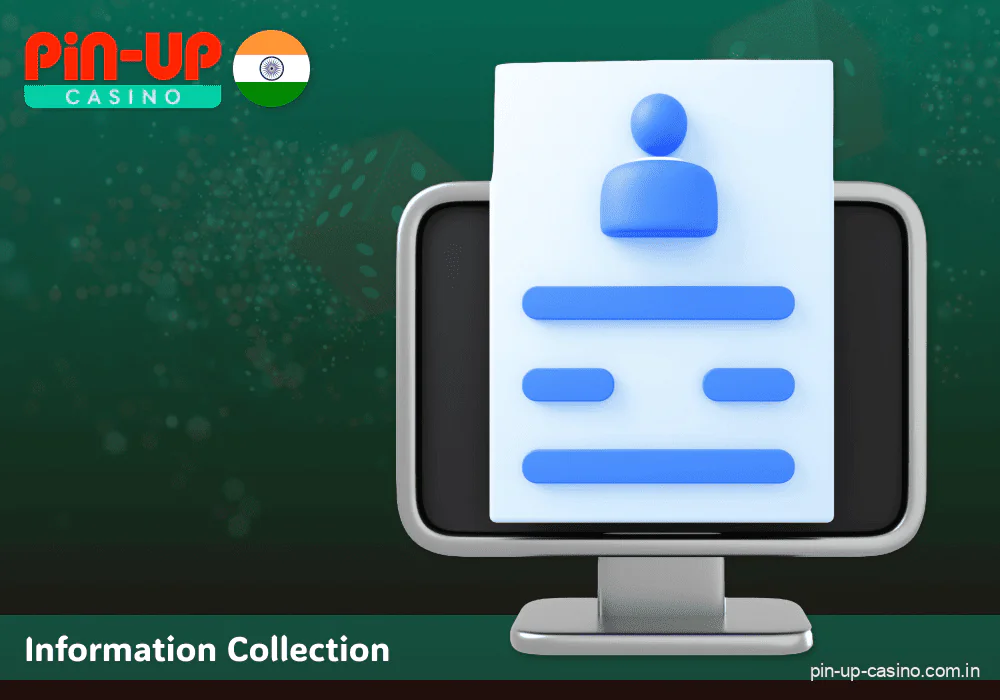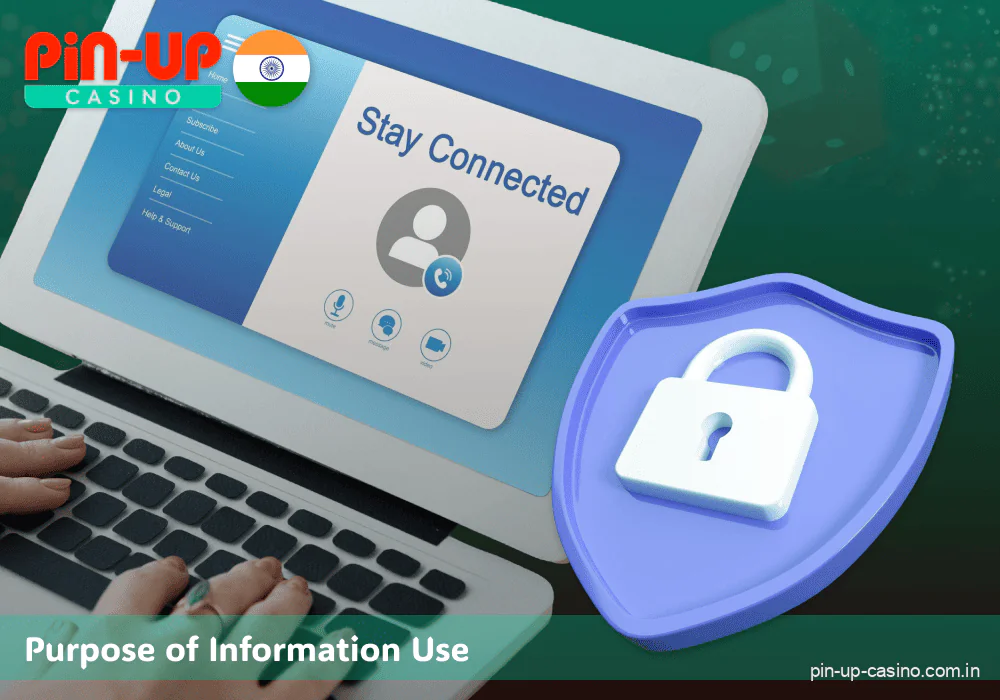Privacy Policy
The Pin Up privacy policy guarantees the non-disclosure of users’ data. The online gaming site complies with necessary standards and laws for safeguarding data. This document describes how the company gathers, uses, and protects Indian players’ details.

Information Collection
The company gathers some private details from the users to provide top-notch services. They can be classified into two broad categories:
- Personal data. During the registration on Pin Up India, users must specify their full name, date of birth, residence, e-mail, phone, and bank profile details. This material is retrieved for identity verification, transaction processing, and fraud detection;
- Non-personal details. Pin Up also requires non-personal details, which are processed through cookies and tracking technologies. This includes tracking your IP address, browser type, device, and geolocation. Aggregated data allows Pin Up to optimize the operation of the services, improve performance for users, and provide content better suited to Indian players’ preferences.

Purpose of Information Use
To meet legal requirements, the company gathers certain details. The casino website retrieves them for the following purposes:
- Account Management. User profiles require confidential details to function, ideally to register and to serve the user with updates as and when they occur;
- Finance Operations. To facilitate deposits, withdrawals, and bonuses, bank account details as well as payment data are required;
- Security and Fraud Prevention. Players’ data is also used to reduce the risk of fraud and ensure the integrity of the gaming environment;
- Marketing & Promotions. With the player’s consent, Pin Up may use contacts to directly send promotional content, such as promo offers, bonuses, and information regarding new games and features;
- Customer Service. The gaming site uses player information to offer customer support, troubleshoot issues, and respond to questions about profiles or gameplay.

Data Protection and Security Measures
Some features are in effect on the website and mobile application of Pin Up that ensure that private and bank account information is safe from illicit access, change, or disclosure.

Encryption and Secure Connections
To safeguard sensitive details transmitted between users and the casino’s servers, Pin Up uses recognized encryption technologies, such as Secure Socket Layer (SSL) encryption. This means that all banking transactions and exclusive data are securely encrypted and cannot be intercepted.

Secure Storage of Data
There are reliable databases in which all confidential and banking details are recorded. The highest security protocols are established for them. This data can only be accessed by personnel who have been granted permission. Security checks are carried out repeatedly to ensure the lawfulness of the details protection standards.

Compliance with Data Protection Laws
The company follows the requirements of relevant regulations for safeguarding data, including those pertinent to Indian players. Although India doesn’t have a GDPR-like data protection law yet, Pin Up complies with the international standards of privacy to safeguard the players’ rights.

User Rights and Control Over Data
Pin Up respects the rights of the users to dispose of their data independently. The casino grants Indian players the following rights:
- Right to Access. Players may demand a copy of facts about them at any time. This enables the user to validate and verify the details stored on the third-party site;
- Right to Rectification. In case any private details are wrong or outdated, the users can ask to update or correct their profile;
- Right to Erasure. Users may ask for erasure of their data from Pin Up. Of course, some details must be kept for legal/financial reasons, such as transactions or anti-money laundering checks. Unnecessary transactions should be discarded;
- Marketing Communications Opt-Out. Players may elect not to receive promotional materials from the casino by updating their preferences in their account settings or by opting out of marketing emails directly.

